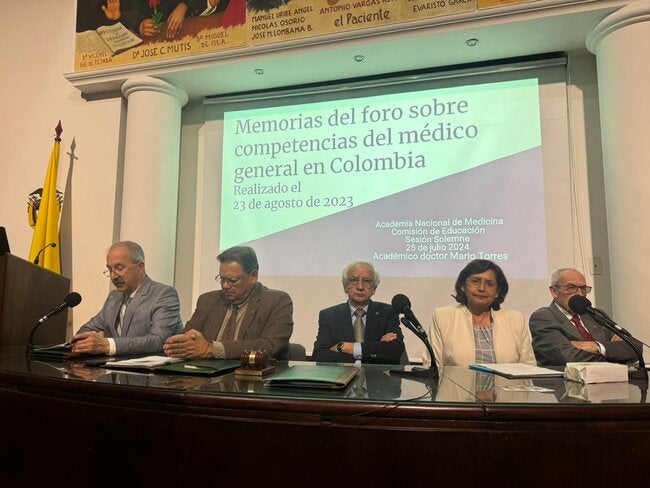Everything around us is science. The clothes we wear, the beer and water we drink, the watch on our wrist or the plate we cook with. However, despite the importance of science in our daily lives, “we do not give it the value it deserves because we take it for granted.” After this introduction, Enrique Cobos, professor at the University of Navarra and science journalist, presents his new publication La Ciencia en Noticias, a book in which “you learn about science firsthand.”
Through this book, Cobos seeks to achieve a triple goal. On the one hand, he “told society about the real impact of science” by publishing relevant research and interviews with specialists in order to “appreciate the scientific profession and remove the idea that they are distant people in their laboratories.” Finally, it is directed to young people with the aim of awakening scientific vocations among them and making the topics discussed attractive to them.
This lack of appeal, which translates into a lack of interest on the part of the population, is one of the reasons Cobus discovered as a cause of scientific ignorance in society. The latest survey conducted by the Spanish Foundation for Science and Technology (Fecyt) concluded that Spaniards have priorities such as entertainment, culture or sports before science, meaning that “having a good time comes first.”
If you add the excess of scientific information, “there are more and more scientists, science journalists and publishing platforms” and the complexity of technical and rigorous language, it makes it even more difficult to generate interest. Among this wide offer there are also “some people who exploit media such as social networks, which sometimes infiltrate the media, to spread their beliefs without any scientific rigor.” In this way, ideas such as the flat Earth theory, anti-vaccines, or treating diseases with magnets spread, which are “pseudosciences that only increase ignorance.”
Learn how to make decisions
This ignorance of scientific training has a dangerous consequence: “we are easily manipulated.” If we do not have our own opinions based on scientific data, this encourages us to adopt “the beliefs of others.” From this standpoint, Cobos calls for the need to obtain accurate and coherent information, which does not mean more information but rather of higher quality, so that we can make the best decisions.
This way of acting is part of the changes that Cobos proposes to solve the scientific lack of knowledge we face and in which he directly appeals to four main agents in society.
The first thing to mention is the various political forces that “must realize that science is what makes us progress as a society and we are betting on it.” He calls on the public administration to “involve scientists in the decision-making process because they are the ones who have accurate information.” “In the pandemic it has been implemented and must be maintained to address crisis management.” On the other hand, it calls for allocating economic resources to provide stability in the professional lives of scientists, as well as increasing funds allocated to scientific projects “because they have an impact on society itself.”
Educational centers also have to change their methods because “some are outdated and others are avant-garde” and opt for practical teaching. “They should entrust students with the responsibility of solving scientific problems so that they can propose solutions and thus awaken advocacy,” says the author.
Scientific institutions such as museums and universities and scientists themselves also have a role and “should be trained to communicate and report research well to develop further publishing work.” It is a task in which the media must also participate, whose work, according to Cobos, must include “getting off the political agenda and dealing with more unknown scientific issues that also have an impact, not just when the last NASA rocket takes off.” “We will not be able to put an end to scientific ignorance in our society unless it is addressed jointly and we support science in all its aspects.

“Social media evangelist. Student. Reader. Troublemaker. Typical introvert.”




:quality(85)/cloudfront-us-east-1.images.arcpublishing.com/infobae/SXDWOIO7O5FMZOWUATFEXQYWTY.jpg)


More Stories
National Academy of Medicine and PAHO present reports of the Colombia General Physician Competency Forum – PAHO/WHO
Academic excellence in medical sciences is recognized at Granma.
Medical simulation has revolutionized the training of doctors in the country.